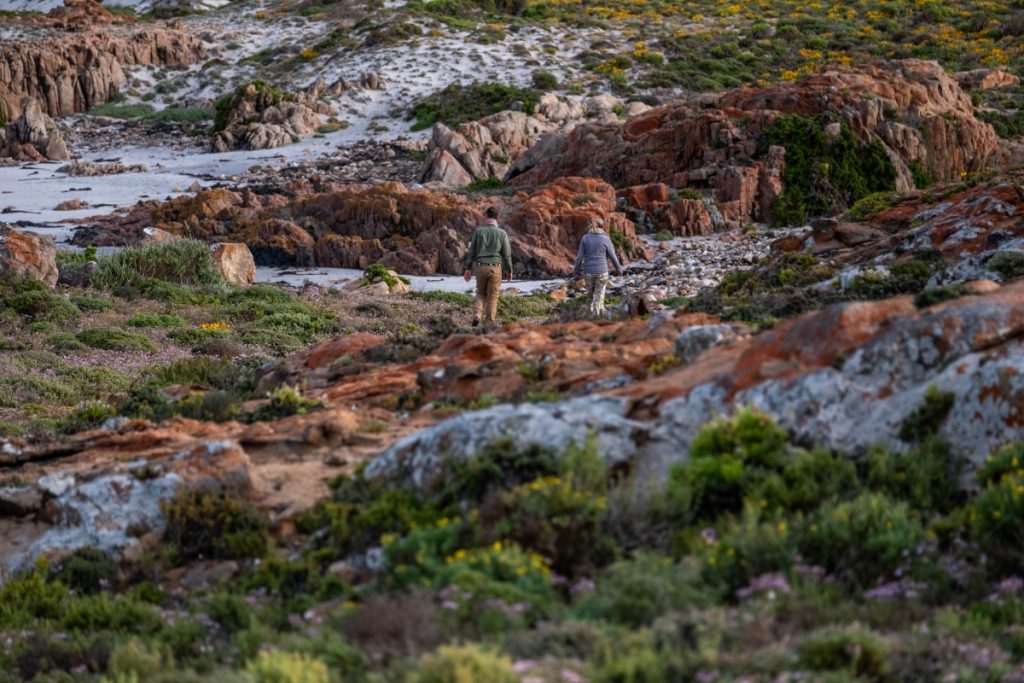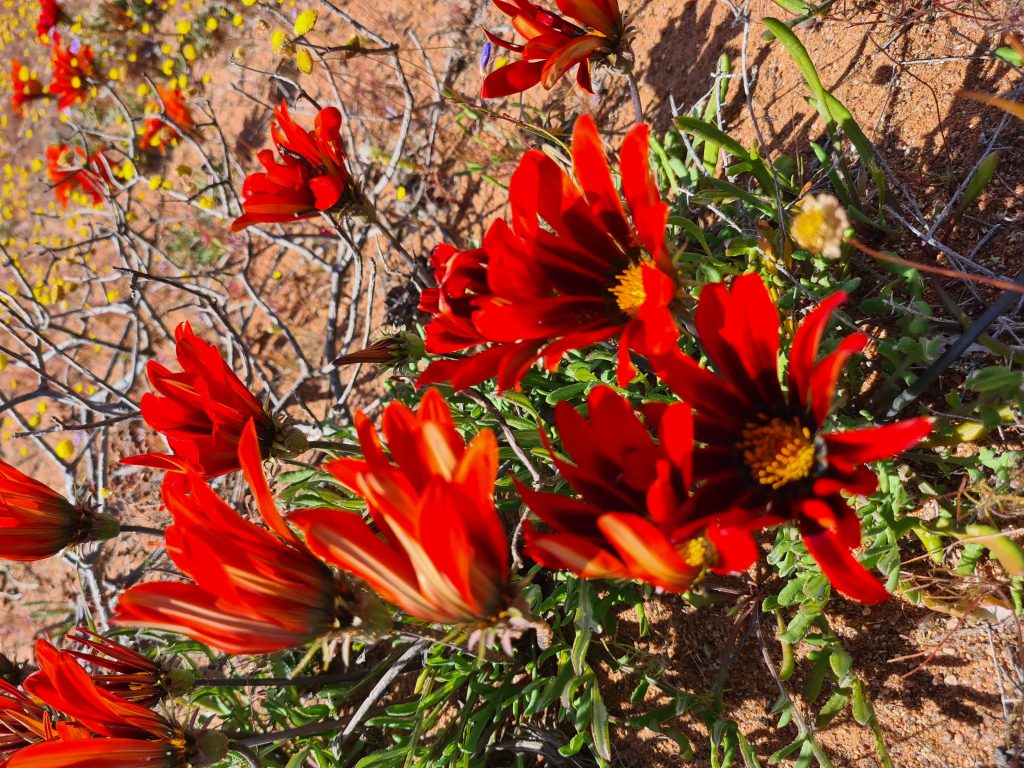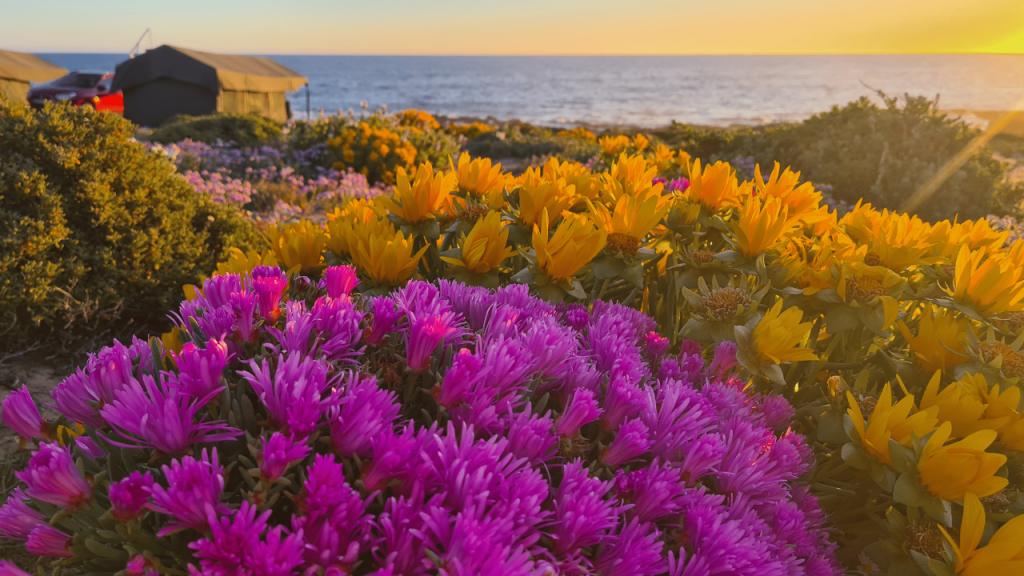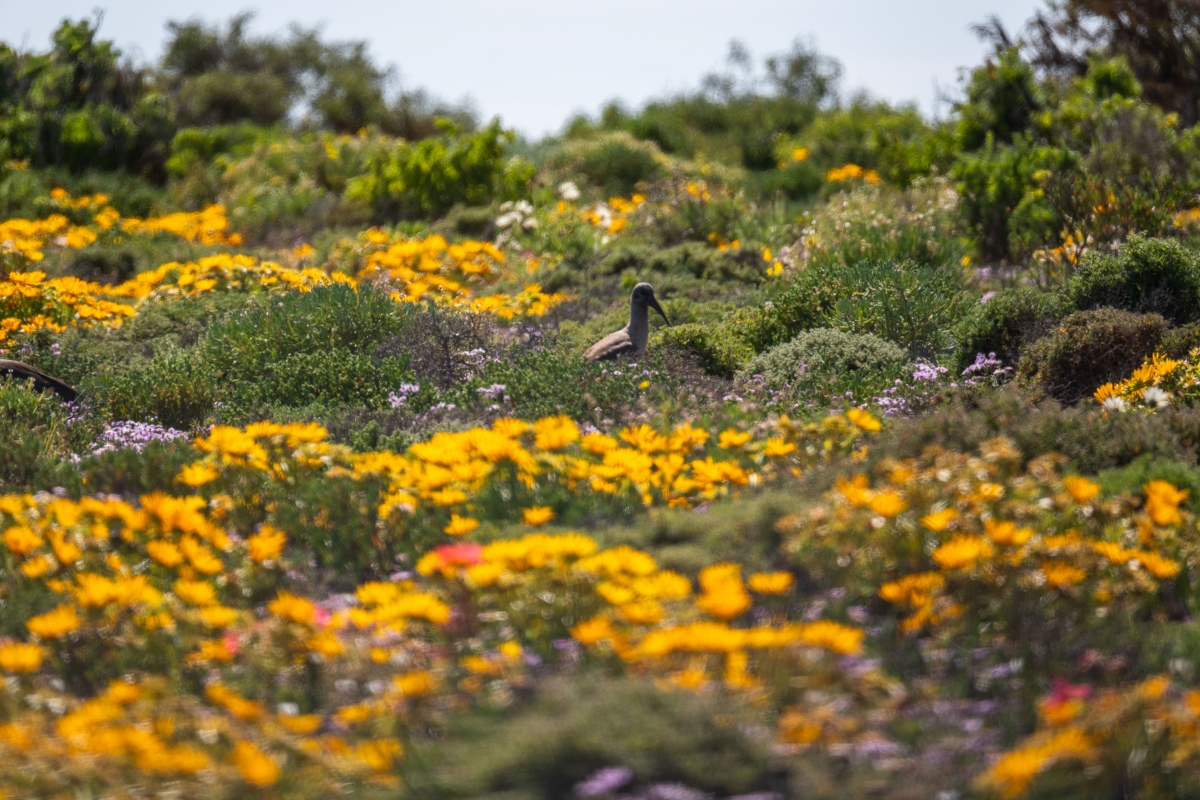As the global demand for sustainable travel surges, travellers now seek eco-friendly options, and the seasonal Namaqua Flower Beach Camp is setting a new standard for sustainable travel.
Every year, the Namaqualand wildflower bloom transforms the arid coast into a living tapestry, thousands of endemic species burst into colour across one of the most biodiverse floral regions on Earth. But this beauty is fleeting, fragile, and entirely dependent on balance in the natural world.
At Namaqua Flower Beach Camp, the flowers aren’t just a backdrop; they are a reminder of why sustainability matters. Their very existence hinges on clean water, undisturbed soil, and unspoiled pollinator pathways. Operating for only four weeks each spring when Namaqualand blooms in spectral colours, this SANParks-sanctioned seasonal camp is far more than a scenic escape; it’s an exercise in environmental stewardship and low-impact travel.

Pexels
Namaqua Flower Beach Camp’s approach to low-impact travel mirrors this delicacy: light-footprint operations, seasonal presence opening only for just a few weeks each year, and zero permanent infrastructure allows the ecosystem to recover unhindered for the rest of the year.
Now in its second consecutive five-year SANParks concession, the Namaqua Flower Beach Camp continues to set the standard for seasonal, conservation-led travel along South Africa’s West Coast. “At Chiefs Tented Camps, sustainability isn’t an afterthought, it’s our foundation,” explains Lysta Stander, co-founder.
This is travel that not only celebrates nature’s splendour, but protects it, ensuring future generations can stand where we do, and still see the land ablaze with colour.

Supplied
Namaqua Flower Beach Camp Conservation Commitment:
Leave No Trace Philosophy – The camp arrives with everything it needs and leaves with every trace of its stay vanished.
Zero-Permanent Infrastructure – All tents, kitchens, and facilities are fully mobile and removed at season’s end, restoring the setting to its original form.
Tread Lightly Policy – The entire operation is built around minimising the impact on the ecosystem, ensuring the coastal shoreline and wildflowers remain undisturbed.
Existing Disturbed Site Only – The campsite is set up on an already disturbed area to reduce pressure on pristine landscapes.
Responsible Waste Management – Waste is carefully sorted, removed offsite regularly, and transported for recycling or disposal.
Eco-Sensitive Facilities: SANParks eco-loos and our chemical loos—using biodegradable products—ensure minimal impact on the environment.

Supplied
Strict Water Control – Water is transported in and used sparingly, with a clear focus on conservation. Every drop is precious in this arid climate.
Sustainable Sourcing – We prioritise local, eco-conscious and sustainable suppliers wherever possible.
Biodiversity Respect – Guests are educated about the region’s unique biodiversity. Guided walks celebrate the local flora and fauna, without disturbing wildlife.
Seasonal, Temporary Operation – Opening for just a few weeks each year allows the ecosystem to recover unhindered for the rest of the year.
The trend toward mindful, slow, and purpose-led travel is driving demand for authentic wilderness experiences.
Eco-certified accommodations see a 15% revenue uplift, and 78% of travellers prefer certified stays.
Why it matters in 2025:
Global tourism accounts for 8% of greenhouse emissions, but sustainable practices can cut this by up to 40%.
76% of travellers say they will travel more sustainably this year, though nearly half find such options scarce.
ALSO SEE: NAMAQUA FLOWER CAMP AWARDED SECOND SANPARKS CONCESSION AS WILDFLOWER SEASON NEARS
Namaqua Flower Camp awarded second SANParks Concession as Wildflower season nears
Image: Supplied

